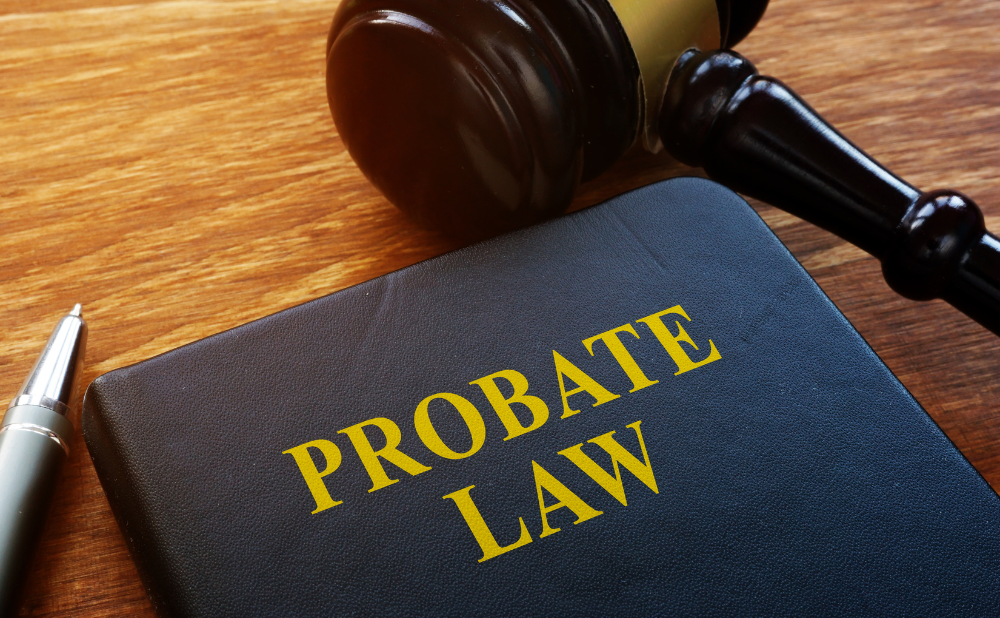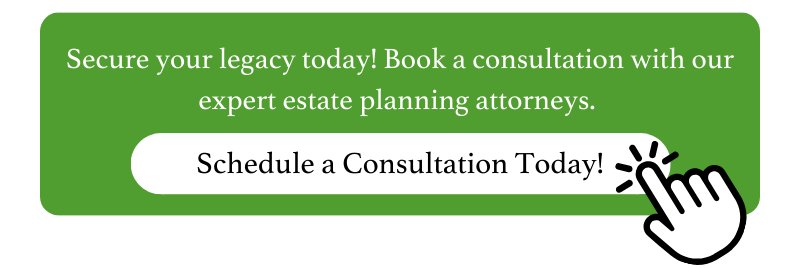Dealing with the loss of a loved one is tough. On top of the emotional toll, there are financial matters, like figuring out what happens to their assets. The big question many people face is, can probate be avoided, and if so, how?
The probate process is public. But, with planning, it’s often possible to bypass it, which can help address ways “can probate be avoided”. This allows for a smoother transition of assets. In this article, we will explain the probate process and discuss how working with a estate planning attorney in Westmoreland County can help you avoid this difficult process.
Understanding the Probate Process
What is Probate? Probate is the court-supervised legal process for validating a will, if there is one. The court’s primary objectives are to:
- Take inventory of the assets
- Pay debts and taxes
- Distribute what’s left to the heirs
This process can feel like having your family’s financial life on display for anyone to see. The probate process involves:
- Filing the will with the court
- Notifying beneficiaries and heirs
- Identifying and collecting assets
- Paying debts, taxes, and other expenses
- Distributing assets according to the will or state law
What Happens if There is No Will?
If there is no will, a judge steps in to decide, a process known as intestacy. In this case, the state’s intestacy laws determine how assets are divided. This can lead to:
- Uncertainty and conflict among family members
- Delays in distributing assets
- Increased costs and legal fees
- Unintended beneficiaries receiving assets
The Role of a Will and the Executor
Having a will may require probating that will and appointing a personal representative/executor. The executor must be bonded to receive Letters testamentary, authorizing action on behalf of the estate. The executor’s responsibilities include:
- Managing the estate’s assets
- Paying debts and taxes
- Distributing assets according to the will
- Representing the estate in court
The Probate Court
This court is a specialized court, dedicated to handling probate matters. The probate court’s role is to:
- Oversee the probate process
- Resolve disputes and conflicts
- Ensure that the estate is distributed according to the will or state law
- Provide guidance and support to the executor and beneficiaries
Benefits of Having a Will
Having a will can:
- Ensure that your wishes are respected
- Avoid conflicts and disputes among family members
- Minimize delays and costs associated with probate
- Provide for the care and well-being of minor children or dependents
- Distribute assets according to your intentions
By understanding the probate process and the importance of having a will, you can take control of your estate and ensure that your loved ones are protected and provided for.
Why People Try to Avoid Probate
Probate, even if you hire an probate attorney to assist, has a lot of required forms to properly administer an estate. Some of them being that a personal representative has a duty to notify all interested parties. In addition to these filings, estates often come with hefty lawyer fees, and other costs.
It is public record, exposing assets and finances to the public. It also often takes many months, sometimes even years. This adds stress during an already challenging period.
Strategies for Avoiding Probate
As a Pennsylvania resident, you have probate avoidance strategies at your disposal. Here are a few options to help avoid the probate process:
Revocable Living Trusts
One popular way that can be used is creating a living trust. With a living trust, assets aren’t part of your estate plan, so they sidestep the probate process after your death. While you’re alive, your assets are still there and useable, accessible to you as the grantor of the trust.
It saves loved ones time and money, and it can all be private. Unlike wills, which are public probate court documents, living trusts are private documents.
Joint Ownership with Rights of Survivorship
Joint ownership is a great way to avoid probate, with things like checking accounts or real estate. If you have real property or accounts titled as a joint owner with another party with rights of survivorship, you’re not subjected to going through probate. If one owner dies, the property instantly transfers to the surviving owner, cutting out probate entirely.
Remember though, tax and legal implications should always be checked out. For instance, upon death of an owner, half of the asset is part of their taxable estate and could be subject to estate taxes.
Beneficiary Designations
Assets such as retirement accounts, and life insurance, allow beneficiaries to be named. These assets avoid probate. These can be setup directly with the financial institutions, like a bank.
These can be referred to as POD accounts. It helps people get your money more easily and keep your personal finance more private.
Transfer-on-Death (TOD) Designations
Some assets, like bank accounts and investment accounts, let you name a “payable-on-death” (POD) or “transfer-on-death” (TOD) beneficiary. Similar to POD’s mentioned above, Pennsylvania recognizes TOD’s to help keep accounts out of probate court.
With this type of transfer, people that are listed get those assets after a death and by bypassing the entire process. It allows people quick access, and things like a savings account can easily be transferred.
Small Estate Procedures
Many states have a minimum estate value. In Pennsylvania, small estates valued under $50,000 that don’t have real estate may avoid probate.
It simplifies things and the majority of states do have provisions that are small, so they don’t clog up the legal system.
Gifting Assets While Living
This involves giving away your possessions before passing. Items that aren’t yours won’t be subjected to a judge’s decision.
The federal government permits individuals to gift up to $18,000 worth of assets each year to one person. Anything more than that though, and federal law applies to the total value, as per the IRS. If your gifting causes you to go above that annual amount, it could affect your taxes.
Below is a breakdown of ways to transfer property and assets to bypass probate, showing when they are an ideal option:
| Method | Ideal Situation |
|---|---|
| Living Trust |
|
| Joint Ownership |
|
| Beneficiary Designations |
|
| Gifting Assets |
|
| Small Estate Provisions |
|
State-Specific Considerations: The Uniform Probate Code
Probate changes based on state laws. The Uniform Probate Code (UPC) exists in an attempt to unify everything across all states.
While it’s designed for uniformity across the nation, not all states have adopted the code in the same way. Some states, like Pennsylvania, have only adopted parts of the UPC, so it’s important to work with an attorney to ensure you are following all laws and regulations when distributing assets inside and outside of probate.
Why You Should Work with an Estate Planning Attorney
When it comes to creating an estate plan, it’s essential to work with an experienced estate planning attorney. An attorney can help you navigate the complex legal landscape and ensure that your wishes are respected. They can also help you through the complexities of avoiding probate or navigating it with ease.
Customized Estate Planning
An estate planning attorney can help you:
- Identify your goals and objectives
- Assess your assets and liabilities
- Determine the best strategies for your unique situation
- Create a comprehensive estate plan that meets your needs
Expert Guidance
An estate planning attorney can provide expert guidance on:
- Wills and trusts
- Probate avoidance strategies
- Powers of attorney and advance directives
- Tax planning and minimization
- Business succession planning
Probate Assistance
In addition to helping you create an estate plan, an estate planning attorney can also assist with the probate process. They can:
- Guide you through the probate process
- Help you navigate complex legal requirements
- Represent you in court, if necessary
- Ensure that your loved one’s estate is distributed according to their wishes
Benefits of Working with an Estate Planning Attorney
By working with an estate planning attorney, you can:
- Ensure that your estate plan is legally sound and effective
- Avoid costly mistakes and delays
- Protect your assets and minimize taxes
- Gain peace of mind, knowing that your loved ones are protected and provided for
- Receive ongoing support and guidance as your estate plan evolves
Don’t Leave Your Estate Plan to Chance
Creating an estate plan is one of the most important decisions you’ll make. Don’t leave it to chance. Work with an experienced estate planning attorney to ensure that your wishes are respected, and your loved ones are protected and provided for.
Take the First Step
Contact an estate planning attorney at Bumbaugh | George | Prather | DeDiana today to schedule a consultation and take the first step towards creating a comprehensive estate plan that meets your unique needs and goals.
FAQs about can probate be avoided
How do you get around probate?
Probate has workarounds like setting up trusts. You can also set up joint ownership accounts or simply naming beneficiaries on accounts like a money market account. You should always work with an attorney when exploring these strategies to ensure your assets and loved ones are protected.
Which of the following is a commonly used way to avoid probate?
Living trusts are a good one. Other probate avoidance options, though, include joint ownership, and beneficiary designations. You estate planning attorney will be able to talk you through all your options.
Who determines if probate is necessary?
The probate court in the county where the person lived will decide that. An estate planning attorney can provide further guidance.
Which of the following assets do not go through probate?
Assets held in a living trust, assets with named beneficiaries like life insurance life insurance, or those held in joint ownership. If a savings account is also in both peoples names and is a joint account, then that won’t go through probate either. It will go directly to the surviving family member.
It’s important to contact an attorney to make sure this applies to your unique estate plan and your situation.
Conclusion
While probate serves a purpose, settling debts, and all the things a person leaves behind, it’s understandable to wonder if it can be streamlined. It might cause family concern that some personal items become owned by people that the owner didn’t intend. Remember, whether probate can be avoided is entirely dependent on the legal structure of your estate plan.
By planning things like trusts, beneficiary designations, and understanding small estate rules, you ease things for loved ones. Seeking professional help from a lawyer is a good path to explore when considering estate plans.









